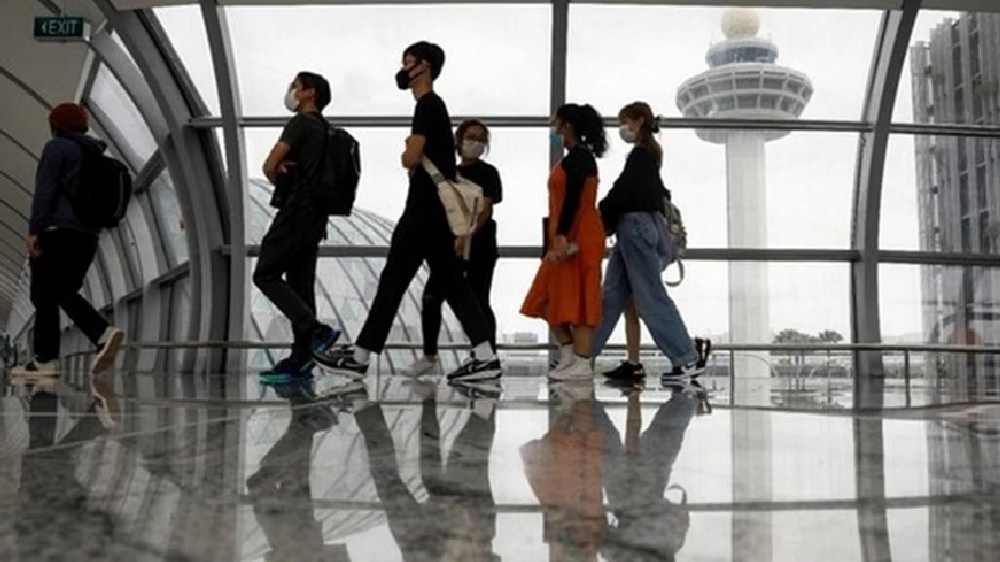Asian tourism-based business ready for China rebound as border opens
China was the world's largest outbound tourism market before the pandemic, and the absence has led to financial trouble for many tourism-dependent businesses and employees.;

SEOUL: South Korean and Japanese shop owners, Thai tour bus operators and K-pop groups are among those celebrating China's border reopening as businesses around Asia rekindle ties with the region's largest economy.
China was the world's largest outbound tourism market before the pandemic, and the absence of its once $255 billion of annual spending since borders were shut three years ago has led to financial trouble for many tourism-dependent businesses and employees.
"I'm not afraid of getting Covid," said Choi Dae-sung, 49, who has sold clothes and other products in Seoul's busy Myeongdong shopping district for about 30 years but rode a motor bike delivering food to make ends meet during the pandemic.
"We had such a hard time, and I would rather have more Chinese people come than the government restricting their entry so I can do business." Hikeshi Spirit, a clothing store in Tokyo's Asakusa district that was hugely popular with Chinese tourists before the pandemic, is also hoping this key customer segment will join other nationalities in returning soon, sales manager Masaki Nagayama said.
"About 90% of our staff can speak English, so with the timing for Chinese customers, we would like to think about hiring staff who can speak Chinese," he said.
In Thailand, the deputy prime minister personally welcomed Chinese tourists at Bangkok's Suvarnabhumi Airport on Monday, a day after China's border reopening, and the country now hopes Chinese visitors can double this year to 10 million people, nearing the pre-pandemic level of 11 million in 2019.
"Tour bus operators who have had their vehicles idly parked for over three years are now gearing up for (bus) inspections," said Thai Tour Bus Association President Wasuchet Sophonsatien. Kitsanan Bulalom, 53, a Bangkok tour bus driver for 14 years, said he and colleagues were eager to get back to work and earn more cash, adding that he worked six days a week before the pandemic but that was cut to only about one day a week when tourism slumped.
Underscoring the improving travel demand outlook, data from travel website operator Trip.com Group Ltd showed an 83% jump in outbound searches from Dec. 26 to Jan. 5 versus the previous two week period. Thailand, Japan, the United States, South Korea, Australia, Macao, Singapore, Hong Kong and Taiwan were the most-searched destinations.
South Korean K-pop groups are also expected to be among the beneficiaries of China's reopening, with Kyobo Securities analyst Park Seong-guk pointing to an expected bump in ticket and merchandise sales in a note to clients.
A video uploaded to Chinese social media site Weibo on Sunday showed K-pop boy band Tempest posing on the red carpet of a local music festival after arriving at Beijing Capital International Airport. Yue Hua Entertainment Korea, which manages Tempest, did not respond to a request for comment.
Park at Kyobo predicted the four major K-pop agencies – Hybe Co Ltd, SM Entertainment Co Ltd, JYP Entertainment Corp and YG Entertainment Inc – will see tour attendance grow by 35.6% this year compared to 2019 when sales were depressed due to tension over the THAAD U.S. missile defence system stationed in South Korea.
Share prices in China-exposed companies as varied as Airports of Thailand PCL and South Korean cosmetic makers LG H&H Ltd and AmorePacific Corp have performed strongly in anticipation of a rebound in business since the border reopening was announced on Dec. 26.
But some businesses are striking a more cautious note, as many countries implement travel restrictions that require Chinese visitors to take pre-departure Covid tests and cap flight numbers to and from the mainland. International flights to and from China remain at only 11% of 2019 capacity, Cirium data showed, leading to high air fares ahead of the week-long Lunar New Year holiday beginning Jan. 21.
"We welcome the measure of reopening the border but try not to estimate a quick jump in business once the border reopens," Annie Yau Tse, chairwoman of the Hong Kong Retail Management Association, which represents more than 9,000 retail outlets, said last week. "
The pandemic outbreak on the mainland is still vigorous and needs time to recover, while domestic consumption remains weak on the mainland."
Visit news.dtnext.in to explore our interactive epaper!
Download the DT Next app for more exciting features!
Click here for iOS
Click here for Android

